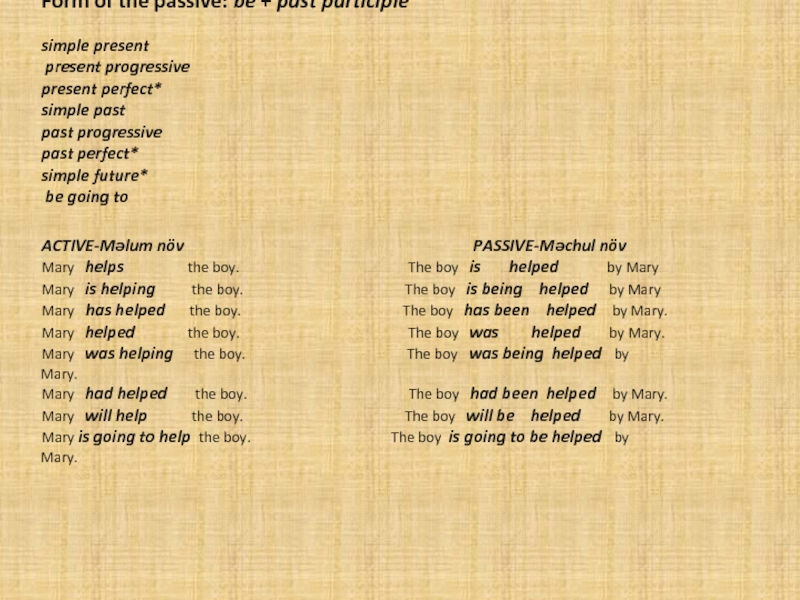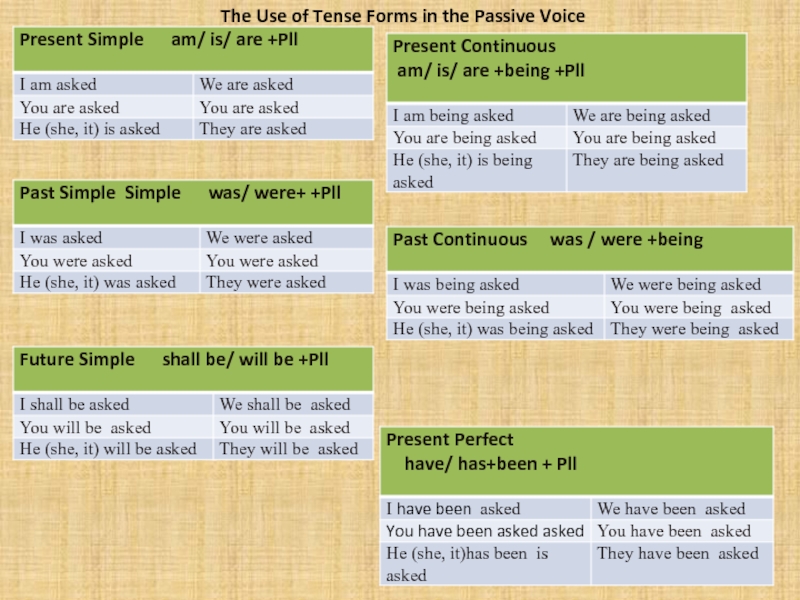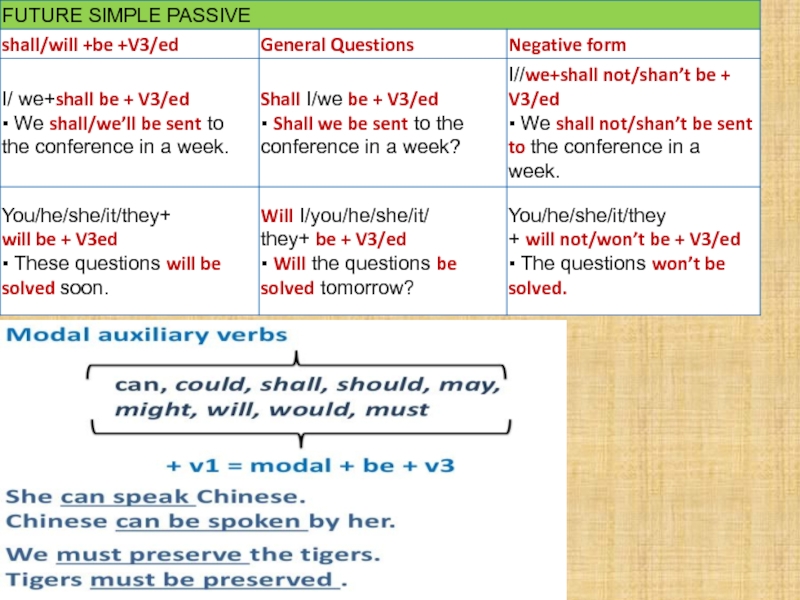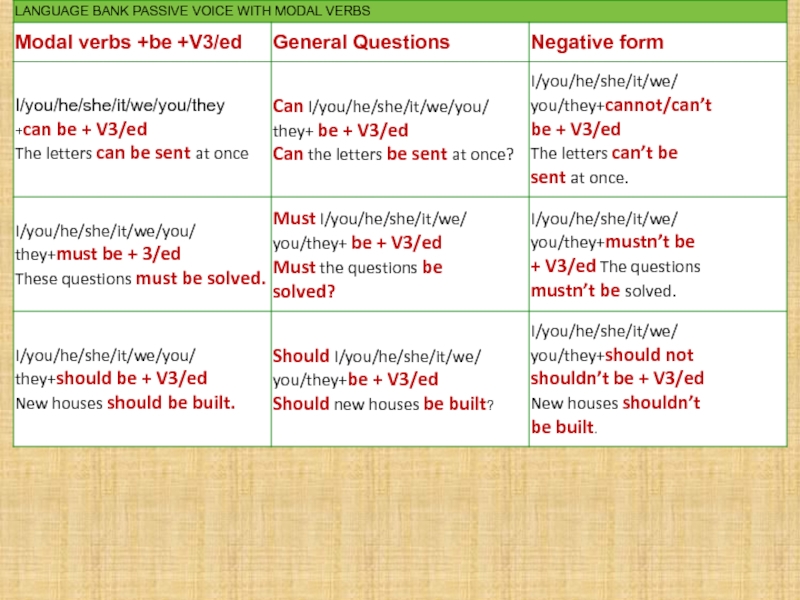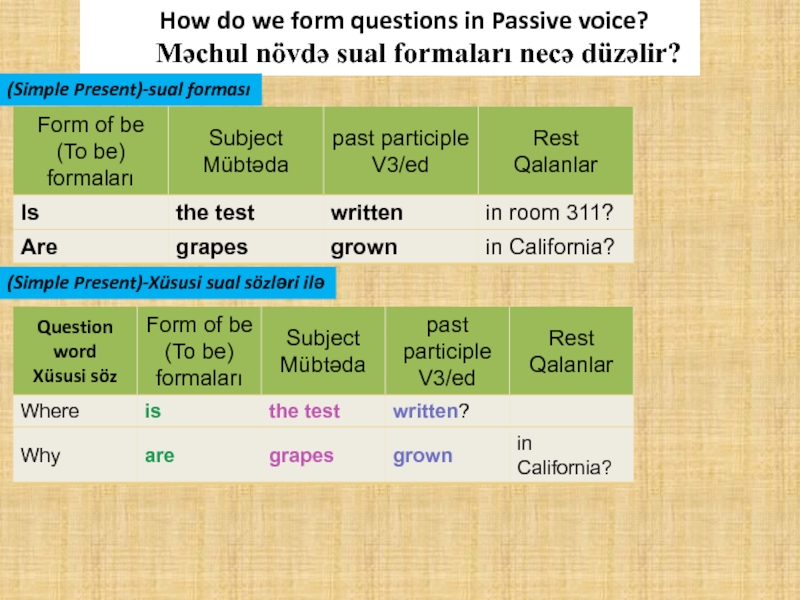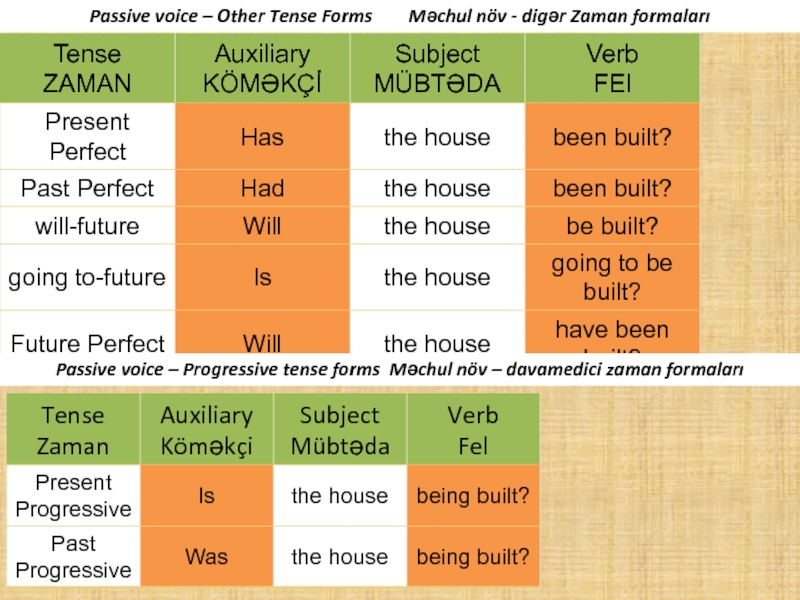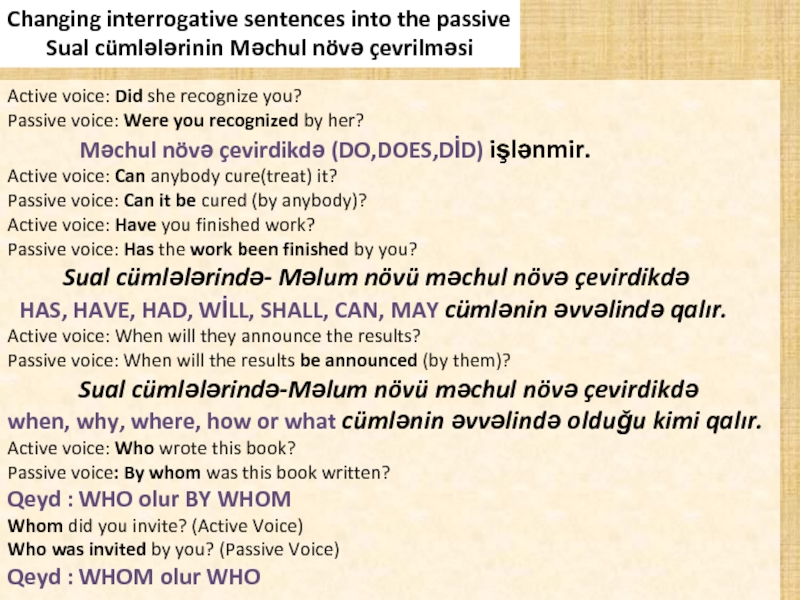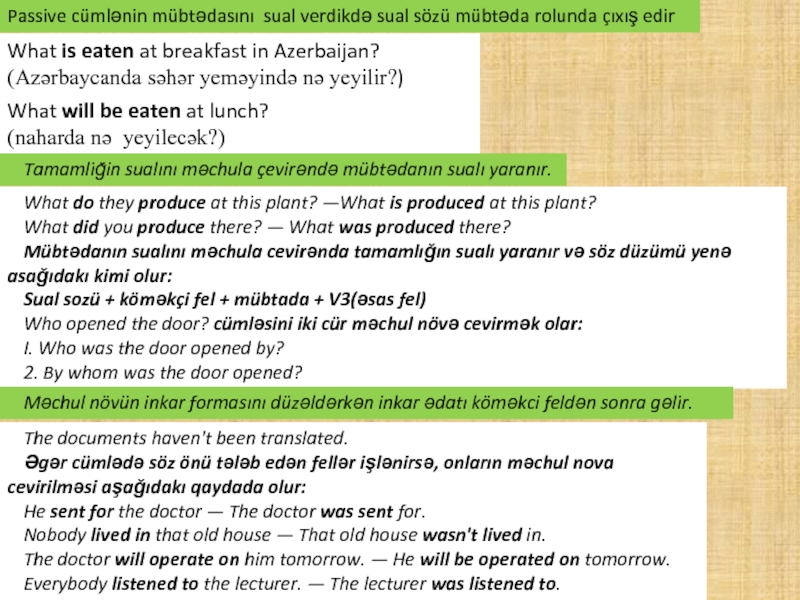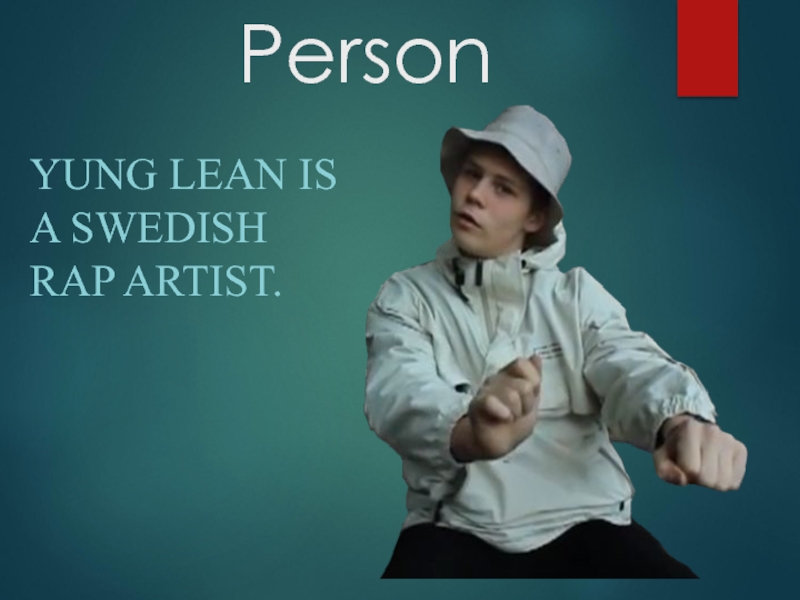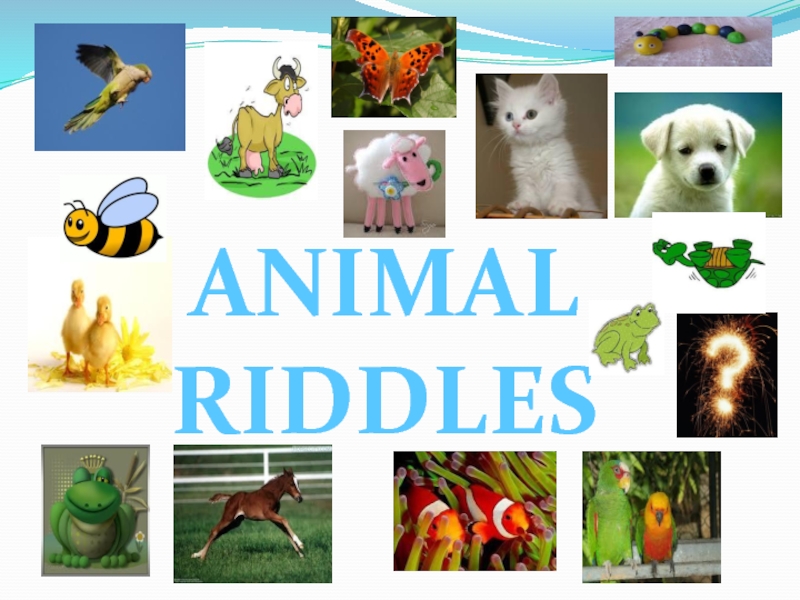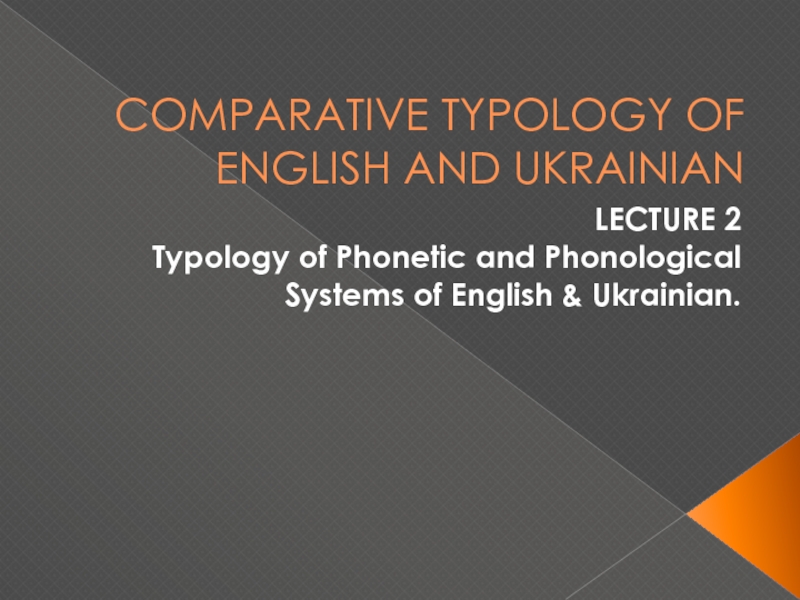- Главная
- Разное
- Дизайн
- Бизнес и предпринимательство
- Аналитика
- Образование
- Развлечения
- Красота и здоровье
- Финансы
- Государство
- Путешествия
- Спорт
- Недвижимость
- Армия
- Графика
- Культурология
- Еда и кулинария
- Лингвистика
- Английский язык
- Астрономия
- Алгебра
- Биология
- География
- Детские презентации
- Информатика
- История
- Литература
- Маркетинг
- Математика
- Медицина
- Менеджмент
- Музыка
- МХК
- Немецкий язык
- ОБЖ
- Обществознание
- Окружающий мир
- Педагогика
- Русский язык
- Технология
- Физика
- Философия
- Химия
- Шаблоны, картинки для презентаций
- Экология
- Экономика
- Юриспруденция
Passive voice презентация
Содержание
Слайд 1Form of the passive: be + past participle
simple present
present progressive
present perfect*
simple past
past progressive
past perfect*
simple future*
be going to
ACTIVE-Məlum növ PASSIVE-Məchul növ
Mary helps the boy. The boy is helped by Mary
Mary is helping the boy. The boy is being helped by Mary
Mary has helped the boy. The boy has been helped by Mary.
Mary helped the boy. The boy was helped by Mary.
Mary was helping the boy. The boy was being helped by Mary.
Mary had helped the boy. The boy had been helped by Mary.
Mary will help the boy. The boy will be helped by Mary.
Mary is going to help the boy. The boy is going to be helped by Mary.
Слайд 6 How do we
Məchul növdə sual formaları necə düzəlir?
(Simple Present)-sual forması
(Simple Present)-Xüsusi sual sözləri ilə
Слайд 7 How do we
Məchul növdə sual formaları necə düzəlir?
(Past Simple )-sual forması
(Past Simple )-Xüsusi sual sözləri ilə
Слайд 8Passive voice – Other Tense Forms Məchul növ
Passive voice – Progressive tense forms Məchul növ – davamedici zaman formaları
Слайд 9Changing interrogative sentences into the passive
Sual cümlələrinin Məchul növə çevrilməsi
Active voice:
Məchul növə çevirdikdə (DO,DOES,DİD) işlənmir.
Active voice: Can anybody cure(treat) it? Passive voice: Can it be cured (by anybody)?
Active voice: Have you finished work? Passive voice: Has the work been finished by you?
Sual cümlələrində- Məlum növü məchul növə çevirdikdə
HAS, HAVE, HAD, WİLL, SHALL, CAN, MAY cümlənin əvvəlində qalır.
Active voice: When will they announce the results? Passive voice: When will the results be announced (by them)?
Sual cümlələrində-Məlum növü məchul növə çevirdikdə
when, why, where, how or what cümlənin əvvəlində olduğu kimi qalır.
Active voice: Who wrote this book? Passive voice: By whom was this book written?
Qeyd : WHO olur BY WHOM
Whom did you invite? (Active Voice) Who was invited by you? (Passive Voice)
Qeyd : WHOM olur WHO
Слайд 10Passive cümlənin mübtədasını sual verdikdə sual sözü mübtəda rolunda çıxış edir
What is eaten at breakfast in Azerbaijan?
(Azərbaycanda səhər yeməyində nə yeyilir?)
What will be eaten at lunch?
(naharda nə yeyilecək?)
Tamamliğin sualını məchula çevirəndə mübtədanın sualı yaranır.
What do they produce at this plant? —What is produced at this plant?
What did you produce there? — What was produced there?
Mübtədanın sualını məchula cevirənda tamamlığın sualı yaranır və söz düzümü yenə asağıdakı kimi olur:
Sual sozü + köməkçi fel + mübtada + V3(əsas fel)
Who opened the door? cümləsini iki cür məchul növə cevirmək olar:
I. Who was the door opened by?
2. By whom was the door opened?
Məchul növün inkar formasını düzəldərkən inkar ədatı köməkci feldən sonra gəlir.
The documents haven't been translated.
Əgər cümlədə söz önü tələb edən fellər işlənirsə, onların məchul nova cevirilməsi aşağıdakı qaydada olur:
He sent for the doctor — The doctor was sent for.
Nobody lived in that old house — That old house wasn't lived in.
The doctor will operate on him tomorrow. — He will be operated on tomorrow.
Everybody listened to the lecturer. — The lecturer was listened to.
